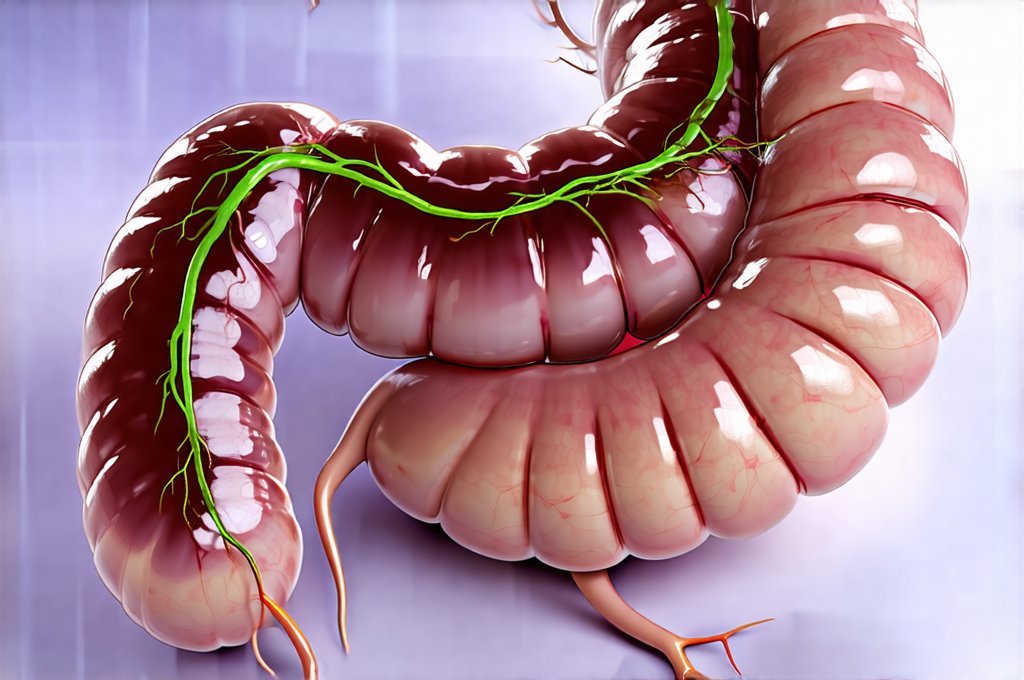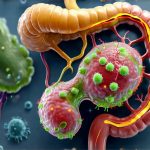The human gut is an incredibly complex ecosystem, home to trillions of microorganisms – bacteria, archaea, fungi, viruses – collectively known as the gut microbiota. This community plays a pivotal role in numerous bodily functions beyond just digestion, including immune system regulation, nutrient absorption, and even mental health. Increasingly, research reveals that this delicate balance within the gut is profoundly susceptible to external factors, particularly environmental toxins. These toxins, ubiquitous in modern life, can disrupt the composition and function of the microbiota, leading to a cascade of effects that ultimately impact gas production levels, digestive comfort, and overall wellbeing. Understanding this connection is crucial for navigating a world increasingly laden with potential disruptors.
Gas within the digestive system is a normal byproduct of bacterial fermentation. It’s created when bacteria break down carbohydrates that haven’t been fully digested in the small intestine. While some gas is inevitable – and even necessary for certain physiological processes – excessive or unusual gas can be a sign of imbalance, discomfort, and potential underlying issues. This isn’t simply about social awkwardness; it points to changes occurring within the gut environment, often triggered by dietary factors, stress, or, significantly, exposure to environmental toxins. The type of gas produced (hydrogen, methane, carbon dioxide, etc.) can also offer clues about the specific microbial activity taking place and pinpoint potential sources of imbalance. This article will explore how various environmental toxins interfere with these processes, ultimately influencing gut gas levels and digestive health.
Environmental Toxins and Gut Microbiota Disruption
The modern environment presents a constant barrage of potentially disruptive substances. These aren’t always obvious pollutants; they’re often found in everyday products like cleaning supplies, personal care items, food packaging, and even the air we breathe. Exposure to these toxins can significantly alter the composition of the gut microbiota—reducing beneficial bacteria populations while promoting the growth of less desirable ones. This imbalance, known as dysbiosis, is a key driver of increased gas production and digestive distress. Several classes of environmental toxins are particularly noteworthy in their impact on gut health:
- Pesticides & Herbicides: Used extensively in agriculture, these chemicals can directly harm beneficial bacteria while favoring the growth of more resilient, potentially harmful strains. They also disrupt the intestinal barrier, leading to increased permeability (“leaky gut”) and inflammation.
- Heavy Metals (Lead, Mercury, Cadmium): Found in contaminated water, food, and industrial products, heavy metals are toxic to both human cells and microbial communities. They can alter bacterial enzyme activity and reduce microbial diversity.
- Phthalates & BPA: These endocrine disruptors, commonly found in plastics, cosmetics, and food packaging, can interfere with gut motility, promote inflammation, and disrupt the balance of the gut microbiota.
- Air Pollutants (Particulate Matter): Even breathing polluted air can introduce toxins that reach the gut via inhalation and ingestion, impacting microbial composition and function.
The effects aren’t always immediate. Chronic, low-level exposure to these toxins can gradually erode gut health over time, leading to subtle shifts in the microbiota that may not cause noticeable symptoms until a threshold is crossed. This makes identifying the root cause of digestive issues challenging, as it often requires considering cumulative exposures and underlying vulnerabilities. A healthy diet rich in prebiotic and probiotic foods can help mitigate some effects but isn’t always enough to overcome significant toxicant burdens. Understanding the impact of environmental toxins on gut health is crucial for many.
The Gut-Brain Axis & Gas Production Feedback Loops
The gut doesn’t operate in isolation; it’s intimately connected to the brain via what is known as the gut-brain axis. This bidirectional communication pathway involves neural, hormonal, and immunological signals. Environmental toxins can disrupt this axis in several ways, exacerbating gas production and related symptoms. For example, chronic stress – often triggered by environmental stressors or toxin exposure itself – alters gut motility and microbial composition, leading to increased fermentation and gas formation. The resulting discomfort then amplifies the stress response, creating a vicious cycle.
Furthermore, toxins that compromise the intestinal barrier can allow bacterial metabolites (including gases) and inflammatory compounds to leak into the bloodstream, triggering systemic inflammation. This inflammation further disrupts gut function and exacerbates symptoms. This is why addressing environmental toxin exposure often requires a holistic approach—one that considers both gut health and stress management strategies. Understanding the effects of stress on gut motility can help manage this cycle. The brain’s response to discomfort also plays a role; perceiving gas as a significant problem can actually amplify the sensation, leading to increased anxiety and further disruption of digestive processes. It’s a complex interplay where psychological factors are intertwined with physiological ones.
Impact of Specific Toxins on Gas Production
Different environmental toxins impact gut microbiota composition in distinct ways, resulting in variations in the types and amounts of gas produced.
- Pesticides: Exposure to even small amounts can reduce populations of Bifidobacteria and Lactobacilli, beneficial bacteria that help maintain a healthy digestive environment. This reduction leads to an increase in gas-producing bacteria like Clostridium perfringens. The resulting gas is often characterized by bloating, abdominal pain, and changes in stool consistency.
- Heavy Metals: Mercury exposure, for instance, has been linked to increased methane production by certain gut microbes. Methane is a slower-moving gas that can contribute to constipation and bloating, creating significant discomfort. Lead exposure disrupts the overall diversity of the microbiome, favoring strains associated with inflammation and altered fermentation patterns.
- Endocrine Disruptors (BPA/Phthalates): These compounds interfere with hormone signaling in the gut, impacting motility and nutrient absorption. This leads to undigested carbohydrates reaching the colon, where they are fermented by bacteria, resulting in increased hydrogen gas production and potential bloating.
The specific microbial changes induced by each toxin determine the quality of the gas produced as well as its quantity. Identifying which toxins an individual is exposed to (through testing or lifestyle assessment) can help tailor interventions aimed at restoring gut health and reducing gas production. It’s important to remember that even “safe” levels of exposure, according to regulatory standards, may be enough to disrupt a sensitive gut microbiome. Understanding the effects of antibiotics on gut flora can provide context for these disruptions.
Detoxification Strategies for Gut Health
While eliminating all environmental toxin exposure is often unrealistic, several strategies can help minimize their impact on the gut:
- Dietary Modifications: Focus on consuming organic foods whenever possible to reduce pesticide and herbicide intake. Prioritize whole, unprocessed foods over packaged goods containing phthalates and BPA. Increase fiber intake (from fruits, vegetables, and whole grains) to support a healthy microbiota and aid in detoxification.
- Water Filtration: Invest in a high-quality water filter to remove heavy metals and other contaminants from drinking water. Consider testing your water source for specific pollutants.
- Air Purification: Use air purifiers with HEPA filters to reduce particulate matter and airborne toxins indoors, especially if you live in an area with poor air quality.
- Gut-Supportive Supplements: Prebiotic supplements (e.g., inulin, fructooligosaccharides) feed beneficial bacteria, while probiotic supplements introduce beneficial strains to the gut. However, probiotic supplementation should be approached cautiously and may not be appropriate for everyone – it’s best to consult with a healthcare professional.
- Lifestyle Adjustments: Reduce exposure to toxins in personal care products by choosing natural alternatives. Use glass or stainless steel containers instead of plastic when possible.
These strategies aren’t about achieving perfect elimination; they’re about minimizing the burden on the gut and supporting its natural detoxification processes. It’s also important to note that detoxification is a complex process best supported through healthy liver and kidney function, as these organs play key roles in eliminating toxins from the body. Understanding the impact of environmental toxins on liver health is crucial here.
Addressing Intestinal Permeability & Inflammation
As mentioned earlier, environmental toxins often compromise the intestinal barrier, leading to increased permeability (“leaky gut”) and systemic inflammation. Addressing this is crucial for long-term gut health and gas reduction.
- L-Glutamine: This amino acid plays a vital role in maintaining the integrity of the intestinal lining. Supplementation (under professional guidance) may help repair damaged tissues.
- Omega-3 Fatty Acids: Found in fatty fish, flaxseeds, and chia seeds, omega-3s have anti-inflammatory properties that can help reduce gut inflammation.
- Aloe Vera: Aloe vera juice or supplements may soothe the digestive tract and promote healing of the intestinal lining.
- Stress Management Techniques: Chronic stress exacerbates intestinal permeability. Practices like yoga, meditation, and deep breathing exercises can help manage stress levels and support gut health.
It’s essential to remember that addressing intestinal permeability is often a long-term process requiring consistent effort and lifestyle changes. A holistic approach – combining dietary modifications, toxin avoidance, stress management, and targeted supplementation – offers the most effective path toward restoring gut health and reducing gas production. Prioritizing these strategies can significantly improve digestive comfort and overall wellbeing in an increasingly toxic world. Understanding the effects of antibiotics on gut health is vital for a holistic approach to gut restoration.


















